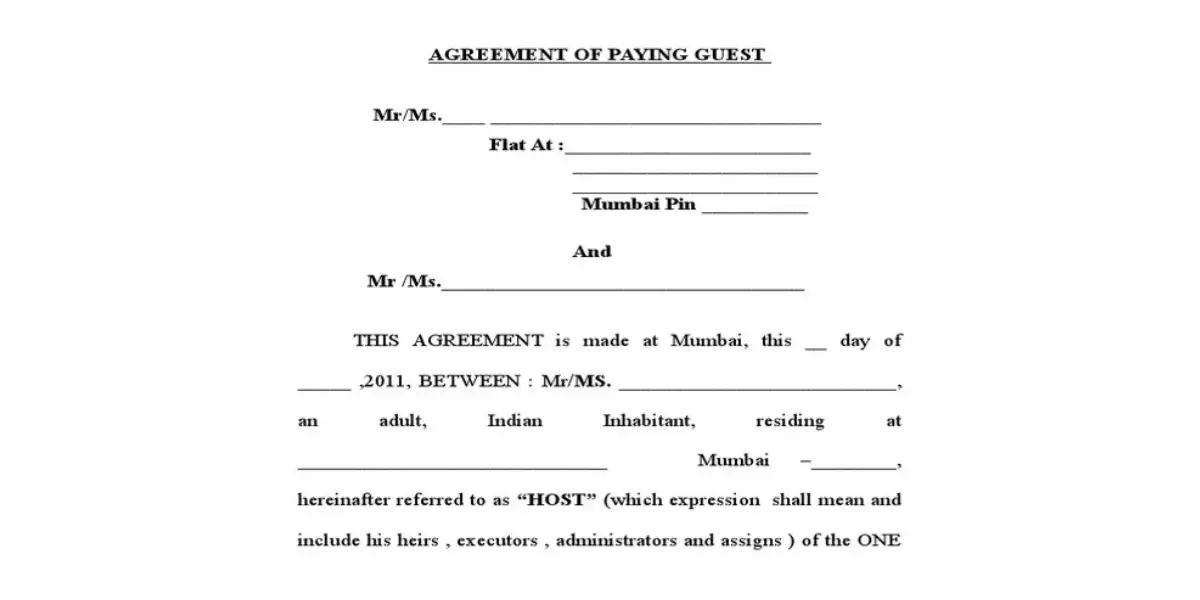Table of Contents
Quality Service Guarantee Or Painting Free

Get a rental agreement with doorstep delivery

Find the BEST deals and get unbelievable DISCOUNTS directly from builders!

5-Star rated painters, premium paints and services at the BEST PRICES!
Loved what you read? Share it with others!

Uttar Pradesh Rent Control Act Explained
Table of Contents
The Uttar Pradesh Cabinet has promulgated the Uttar Pradesh Regulation of urban Premises Tenancy Ordinance, 2021. This law, also known as the UP-rent control act, has come into effect on January 11 2011. The new law will be replacing the UP Urban Buildings (Regulation of Letting, Rent and Eviction). In this blog post, we will explore and understand the changes ushered in by this new tenancy law. Whether you are a tenant or a landlord, we recommend that you read till the end of the article to get a comprehensive picture of the benefits of this new tenancy law.
If you want to read the Original Uttar Pradesh Rent Control act, you do so here. Don’t worry it is available in Both Hindi and English.
What is Tenancy and How do Tenancy Laws work?

Tenancy is defined as the possession of land or property as a tenant. Tenancy Laws such as the UP rent control act aim at defining, describing and delineating the rights, duties and obligations of tenants and landlords while they enter into a tenancy agreement contract. This law will make it easier for landlords and tenants to negotiate the rental agreement, and ensure fair play and transparency.
Quality Service Guarantee Or Painting Free

Get a rental agreement with doorstep delivery

Find the BEST deals and get unbelievable DISCOUNTS directly from builders!

5-Star rated painters, premium paints and services at the BEST PRICES!
UP Tenancy Act: Need for UP Rent Control Act

For the last 50 years or so landlords and tenants have been sceptical about each other. There is a lack of trust between the two parties. This results in a large number of properties remaining vacant. To address this problem, the Union Ministry of Housing and Urban Affairs (MoHUA)passed the Model Tenancy Act 2019.
The Model Tenancy Act 2019 also known as the model rent act, as the name suggests is a model or a set of guiding principles. The power to make laws in the matter of rent and tenancy belong to the State Governments of India and not the Union Government. The UP-Rent control act which has come into power recently has been formula-based one of the model tenancy acts.
So, the model tenancy act is expected to be used as a framework while each state amends its existing tenancy laws or scraps old legislations and drafts new laws. The Uttar Pradesh Regulation of urban Premises Tenancy Ordinance, 2021 will soon become a law when it is approved by the Governor of Uttar Pradesh. Tenancy-related disputes in UP, especially in the heavy residential areas of Noida, Greater Noida and Ghaziabad.
UP Rent Control Act: What the UP-Rental Tenancy Act says about Rent

As per the new Rent Act, the Rent to be paid about the premise has to be agreed upon between the landowner and the tenant as per the terms in the tenancy agreement. The revision of the rent should also be agreed upon by both parties. Additionally, the landlord should give 3 months' notice before the revision of rent becomes overdue. However, if the tenant does not notify the landowner of the termination of the tenancy, it is deemed that the tenant has accepted the rent increase.
How much Rent can be increased per year in Uttar Pradesh? Cap on Rent Hike and Security Deposit

A popular question that arises when you are about to enter into a tenancy agreement, “is the rent fixed under the rent control act” is answered clearly by the new law. The new Rent Control Act states that if the premise has been let for a fixed term, the rent cannot be increased during the tenancy period the tenancy agreement has laid down a method of working out the rental agreement.
Cap on Rent Hike: Rent can be increased by 5% per annum
However, the act mentions certain special conditions on which rent may be increased. For instance, if the landowner in agreement with the tenant has incurred expenditure on the improvement addition or structural alternation of the premise occupied by the tenant, the landlord may increase the rent for one month effective from the completion of work.
Cap on Security Deposit: The law caps the maximum-security deposit the landowner is allowed to collect from the tenant. The security deposit should not exceed two months’ rent in the case of residential property, and it should not exceed six months' rent in the case of non-residential property. By encouraging the landlord and the tenant to act respectfully and fairly to each other, the regulations brought in by the new law will trust the tenant-landlord relationship.
Is Rent Agreement mandatory in UP?

To foster transparency and clarity in communication, the new UP Rent Control Act makes rental agreements mandatory in Uttar Pradesh. The Tenancy ordinance clearly states that “no person shall, after the commencement of this Act, let or take on rent any premises except by an agreement in writing”.
The natural question which arises is, what should be done in the case of tenancy without written rental agreements created before the commencement of the act? In this case, the act mandates both the landlord and the tenant to enter into a written agreement and have it presented with the Rent Authority, a body created and empowered by this act, within three months from the date of commencement of this Act, ie by March 11, 2011.
If either party has difficulty convincing the other party to do the same within 3 months, each party has the right to separately file the particulars, within one month from the date of expiry. If the landlord submits the particulars and the tenant fails to do so in the stipulated time, the landlord may apply for the tenant's eviction. The act also announces that the State Government will be setting up an online platform for the submission of such documents. The format for submitting the particulars is provided by the Government in the Tenancy Act as a Tenancy Form. You can download it here.
Can the Landlord increase Rent without Notice?

The new rental law also protects landlords' rights in India. Revision of rent is a concert that bothers both landlords and tenants alike. The new law ends these worries by demarcating clear grounds for the revision of rent. The rent can be revised only per the terms and conditions of the written tenancy agreement.
However, the new UP rent control act clearly states that, if the landlord had incurred expenditure for improving or adding or altering the structure of the premises occupied by the tenant, the landlord may increase the rent as agreed to between the landlord and the tenant. This rent increase will become effective only one month after the completion of the work.
The act allows landlords to increase the rent at a rate of 5 per cent per annum for residential premises and a rate of 7 per cent per annum for non-residential premises. However, the landlord should give notice in writing to the tenant.
Evicting Tenants as Per UP Tenancy Act Provisions
When a landlord rents out a property to tenants, there are frequent times when the landlord needs the property for personal use or must evict the tenant for various reasons, many of which may be the tenant's fault. However, despite repeated requests from the owner, the tenants may frequently refuse to leave the property.
According to Section 105 of the Transfer of Property Act, 1882, a rental tenancy is merely a sort of lease in which the property is momentarily passed from the owner, who is referred to as the lessor, to the tenant, who is referred to as the lessee. However, all of the regulations pertaining to renters and landlords are covered by the Rent Control Act of 1948, which was passed by the Government of India to regulate the eviction of tenants in India and to calibrate the rentals of real estate. The most crucial need, however, is that you and your tenant have a formal rental agreement in place, which specifies information like the rent amount, the term of the contract, the security deposit, and the reason for the tenant's presence. While the Rent Control Act protects tenants from being arbitrarily evicted from their homes except for specific reasons and circumstances, the landlord nonetheless has the ability to do so if the tenant engages in certain specific behaviours or if the landlord needs the residence for his personal use.
Only when the lease expires or when the landlord terminates the lease by giving a written notice in accordance with Section 106 of the Transfer of Property Act, 1882, is it permissible to evict a tenant; otherwise, the landlord must file a lawsuit and obtain a court order.
UP Tenancy Act: Grounds for Eviction
Any of the following reasons may be used to evict a renter from your property:
- If the tenant's behaviour has significantly reduced the property's worth or value
- If the landlord intends to construct another building that will require the destruction of the property.
- If the tenant does not pay the rent (as specified in the rental agreement) for more than 15 days after the due date, one may file an eviction lawsuit.
- If you or a member of your family needs the property for personal or family reasons.
- If a renter has rented a home, apartment, or other property to someone else before without your knowledge or consent.
- In the event that the neighbour deems the renter's behaviour objectionable and the landlord has been the subject of complaints regarding the tenant.
- if the tenant used the rental property in an unauthorised manner or for a purpose not authorised by the rental agreement.
- If the renter intentionally tries to prove that they are the property's owner.
- In case the Landlord needs to destroy the current structure in order to build a new one.
Key Points to Remember as Landlord while Evicting a Tenant
- Unless otherwise specified in the rental agreement, the landlord may not carry out the eviction by employing illegal tactics, such as turning off the water or electricity, changing the lock on the rental property, discarding the tenant's belongings, or imposing penalties on his own. These are crimes, and the tenant has the right to press charges against the landlord if he is found guilty.
- Only 11 months must elapse in the rental agreement, and a renewal clause is optional. It offers security from future eviction problems.
- According to the state's rental regulations, where the property is located, there must be cause for eviction.
- With the assistance of a real estate attorney, a rent agreement must be created that specifies the use of the property, how it will be terminated, how much rent will be due, and other details.
- If the rent is paid on time and the landlord does not intend to use the property for personal purposes, the landlord cannot evict the tenant for at least five years, according to the Supreme Court of India.
- A tenant cannot be evicted without first receiving an eviction notice from the landlord.
Process of Evicting a Tenant
Step 1: Sending the Tenant a Notice to Evict
An eviction notice must be issued to the tenant, filed in a court with jurisdiction over the matter, and include the grounds for eviction as well as the time and date by which the tenant must vacate the property. The renter must be given a reasonable length of time to leave the rental property, according to the landlord.
Step 2: Bring an Eviction Lawsuit
The tenant has the choice to refuse to vacate the rental property and contest the eviction after receiving the court's eviction order. In this situation, the landlord may hire a rental property lawyer to bring eviction proceedings against the renter. The civil court that has jurisdiction over the rented property is where the tenant's eviction action is filed.
Step 3: The Final Eviction Notice
Following a hearing with both parties, the court issues a final legal notice of eviction for the tenant based on the arguments and evidence presented. The tenant is required to vacate the rental unit as soon as the court issues the final eviction order because they cannot ignore this notice.
How will the Uttar Pradesh Tenancy Act 2021 affect the Housing Market?

The tenancy act is arguably the best step the Government has taken in recent years toward improving transparency and information symmetry in the real estate market. The upper limits prescribed for security deposits in the UP-Rent control act will make more rental houses accessible thereby helping in attending to the housing needs of Uttar Pradesh residents.
How Can NoBroker Help?
Although Real estate laws of Uttar Pradesh, such as the UP-rent control act are becoming more transparent and easier to understand owing to the increasing usage of e-governance mechanisms, navigating legal procedures of ownership and tenancy can be complicated and time-consuming. NoBroker’s Legal Services team is here to assist you in this regard. Our team of experts can guarantee a stress-free tenancy. NoBroker also provides relationship management and property management services making it easy for both tenants and landlords. Download the NoBroker app or use the NoBroker website to reach out to us.
FAQs
As per the New Tenancy Ordinance, the Rental agreement has been made mandatory. Even tenancies that had begun in the unwritten form before the commencement of the new act have been mandated to be put in written form.
The UP Tenancy control act mandates that the rent be agreed upon by both the landlord and the tenant in the form of a written tenancy agreement.
The UP Tenancy act mandates that a security deposit should be utmost twice the monthly rent in the case of residential properties.
The Landlord may approach the rent authority or the rent court if the tenant is not cooperating with the terms of the tenancy agreement or the Tenancy Act.
The tenancy act will open up rental houses that were lying vacant for a long time. It will help in solving the housing crisis that has been troubling Uttar Pradesh.
Recommended Reading

Society Maintenance Charges : Meaning, Cost, Types and Calculation
January 31, 2025
193166+ views

Leave and License Agreements: Meaning, Calculator, Format and Registration in 2025
January 31, 2025
66066+ views

A Comprehensive Guide to Karnataka Rent Control Laws and Tenant Rights
January 31, 2025
58995+ views

Paying Guest Agreement Format: Rules, Terms, Sample and Legal Rights in India
January 31, 2025
35998+ views

Uttar Pradesh Rent Control Act Explained
January 31, 2025
34316+ views
Loved what you read? Share it with others!
Most Viewed Articles

Franking Charges Explained: Meaning and Benefits
January 31, 2025
1115346+ views

Society Maintenance Charges : Meaning, Cost, Types and Calculation
January 31, 2025
193166+ views

BBMP E-Khata Registration process for property owners in Bangalore, Karnataka in 2025
March 19, 2025
145603+ views

Daughter's Right in Fathers' Property - the Law is Finally Equal for both Genders?
June 1, 2025
132557+ views

Rectification Deed Format and Process in India 2025
June 1, 2025
127854+ views
Recent blogs in
How To Register a Rent Agreement Online In Gujarat: Process, Documents and Fees in 2026
January 19, 2026 by Ananth
What is Registered Lease Agreement: Meaning, Legal Validity, Benefits and Online Registration
January 19, 2026 by Krishnanunni H M
What Is a Room Rental Agreement: Meaning, Purpose and Importance in 2026
January 12, 2026 by Kruthi









 Full RM + FRM support
Full RM + FRM support
Join the conversation!